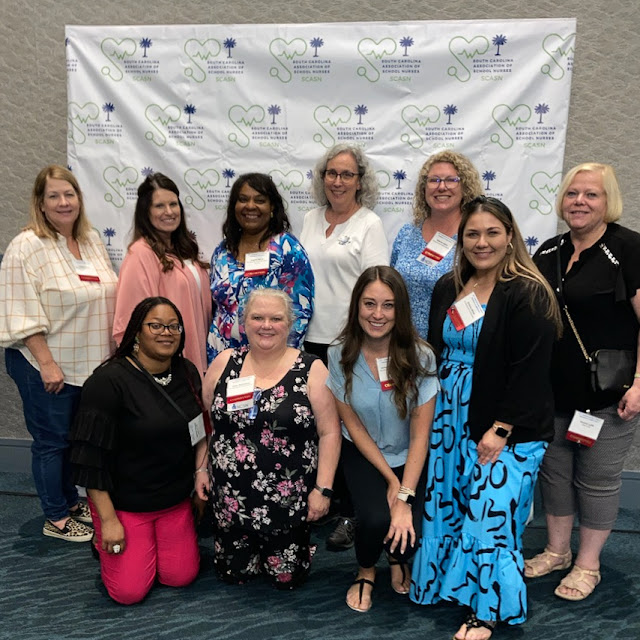One such way Lowcountry AHEC was able to adapt was implementing online modules so that school nurses could continue to receive the same professional development and learning opportunities in a virtual setting. The first course, Foundations of School Nursing, included nine modules and was uploaded to the South Carolina AHEC Learning Portal (ALP) by August 2020. With over 1,600 registrations to this day, Foundations of School Nursing is the most popular course currently on ALP.
“We began to do some work with them on online modules,” said Lowcountry AHEC Center Director Diane Mathews. “All new school nurses were asked to complete the course. This fulfilled a need to orient new school nurses at a time when no one could travel and sit in a classroom.”
Then in 2022, the South Carolina Association of School Nurses (SCASN) received a subaward from the SC Department of Education’s Office of Health and Nutrition. This financial support, which originated from COVID Elementary and Secondary School Emergency Relief (ESSER) funds, allowed Lowcountry AHEC to collaboratively provide an update to the Foundations of Nursing modules, introduce three new courses in the AHEC Learning Portal (Three R’s of Concussion Management, Body Systems 1 and the upcoming Body Systems 2) and put on a live, experiential Poverty Simulation Training earlier this month.
The strength of Lowcountry AHEC’s partnerships was paramount to their successful switch to online learning and instruction. “It is important to partner with SCASN, the State School Nurse Consultant and her team to be sure that school nurses in all counties and districts have the same, high-quality professional development so that all students have school nurses that are up to date on the latest information,” said Mathews.
In addition to the modules on the AHEC Learning Portal and live trainings, SCASN’s subaward also helped fund the 21st annual School Nurse Summer Conference held earlier this year. The two-day conference, themed “Riding the Wave of Resiliency,” was held at the Sheraton Myrtle Beach Convention Center in June and had over 160 attendees, making it the largest event the partnership has hosted since the onset of the pandemic.
Lowcountry AHEC Continuing Professional Development Coordinator Jasmine Douglas was closely involved with the planning and organization of the conference.
“This being our first big conference since the pandemic and based on a needs assessment [our partners] conducted, the group was able to gather up some topics and plan what would be of interest to nurses around the state,” said Douglas.
Keynote sessions for the conference included topics such as sleep disorders in the school-aged population and legal issues and documentation best practices for school nurses. Other breakout sessions featured presentations on self-regulation, inclusion care and support for diverse students, e-cigarettes and vaping prevention and pediatric orthopedic conditions.
Douglas is aware that sometimes the only health care students get may be from their school nurse. Helping provide a space for school nurses to share their experiences with and learn from each other is critical. “I’m happy we’re able to be involved in these conferences and hope we can cater to their needs, give them some relief and make them feel supported.”
Lowcountry AHEC looks forward to continue working with partners such as SCASN, the SC Department of Education and the State School Nurse Consultant to provide the support and resources school nurses need to better serve the students across the state of South Carolina.
To view and register for any of the school nurse modules previously mentioned, visit the AHEC Learning Portal. For more information about Lowcountry AHEC’s programming, visit their webpage at www.lcahec.com.
